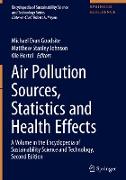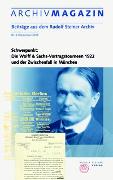- Start
- Air Pollution Sources, Statistics and Health Effects
Air Pollution Sources, Statistics and Health Effects
Angebote / Angebote:
This volume of the Encyclopedia of Sustainability Science and Technology, Second Edition, provides a broad and comprehensive view of air pollution, extending from key urban sources and processes through the regional scale to the global, with close attention given to key sources such as road and air transportation.
Adverse effects on human health have been the main driver of scientific research on the emission, atmospheric behavior, and health effects of toxic pollutants referred to as "locally acting" pollutants. Strict air quality guidelines and standards , including limit values, have been adopted in most countries in order to limit the adverse effects of exposure to a range of pollutants, most typically including particulate matter, sulfur dioxide, nitrogen dioxide, ozone, lead, and carcinogenic pollutants such as benzene and the polycyclic aromatic hydrocarbons. The other main driver of science in the air pollution field has been the recognition that air pollutants have an effect upon global climate and that some of the locally acting air pollutants also have the capacity to influence climate locally, regionally, and globally. Airborne particles affect radiative transfer in the atmosphere and provide one of the largest uncertainties in estimating the anthropogenic influences upon climate change. This volume covers a number of topics, including but not limited to: urban air quality, air pollution monitoring, air quality guidelines, aerosol in the atmosphere, and the effect of transport on air quality. Each contribution contains a glossary of key terms and a concise definition of the subject.
Folgt in ca. 15 Arbeitstagen

